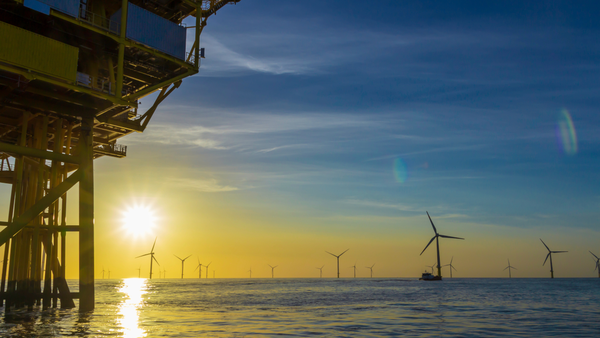Introduction
As a pillar of modern society, energy is often underestimated in its political, economic, and legal influence on our daily lives. Whether we like it or not, the supply, distribution, and consumption of energy has fundamentally moulded the world around us into the one we live in now.
MSc Energy Politics and Law provides you with the opportunity to study energy, as one of the most important yet under-analysed topics in international relations, from a multi-disciplinary perspective.
This course has both January and September start dates. Apply Now.
Eligible self-funded international Masters students will receive the Aberdeen Global Scholarship. Visit our Funding Database to find out more.
Study Information
Study Options
- Learning Mode
- On Campus Learning
- Degree Qualification
- MSc
- Duration
- 12 months or 24 months
- Study Mode
- Full Time or Part Time
- Start Month
- September or January
- Location of Study
- Aberdeen

When ‘energy’ is mentioned, there is perhaps a natural tendency to immediately think of oil or maybe electricity. However, the study of energy is about so much more. As we witness our planet and society confront the swift and relentless consequences of climate change, we are also undergoing the largest energy transition that humankind has ever seen.
MSc Energy Politics & Law is a comprehensive programme that provides you with the building blocks of energy’s role within politics, economics, and law to equip you for careers in any organisation or sector engaging with energy as a topic of policy and praxis.
This programme provides the opportunity and ability to analyse energy as a political instrument, a modern commodity, and a social necessity. Over the course of the MSc, you will have the chance to examine energy within multiple disciplines, looking at issues such as:
- The role of energy within climate and environmental politics and policy
- The securitisation of energy and its role in conflict and violence
- The political and social consequences of fossil fuel and green energy development
- Energy regulations, and gaps in regulation, at the domestic and international levels
- The economics of energy supply, distribution, and consumption
- The legal, economic, and political opportunities and challenges facing our global transition to renewable energies
In Aberdeen, a city once known as Europe’s oil capital, you also have the chance to witness how an oil-based economy is navigating the transition to a renewable one.
Ultimately, this MSc can help you develop a deeper understanding of international politics, law, and economics, from a unique perspective that questions the role of energy across disciplines and provides an insight that is incredibly valuable to a range of potential employers in an energy-dependent world.
Available Programmes of Study
This programme will give you the skills and experience to apply to various sectors in need of expertise in energy politics and law.
Upon completing each course on this programme graduates will come away with knowledge and skills in:
- Understanding the wide spectrum of issues facing international organisations, governments, industries, and the wider public on the supply, distribution, and consumption of energy
- Creating or growing specific expertise around issues intersecting with energy politics and law
- Formulating presentations and presenting on original research
- Writing for academic, legal, and non-specialist audiences
- Translating research into policy briefs for non-specialist audiences
- Producing original academic and non-academic works
- Leading seminar discussions
- Developing work habits to meet multiple deadlines
- MSc
-
Energy Politics and Law
Qualification Duration Learning Mode Study Mode Start Month LocationMSc 12 months or 24 months On Campus Learning Full Time or Part Time September Aberdeen MoreMSc 12 months or 24 months On Campus Learning Full Time or Part Time January Aberdeen More
We will endeavour to make all course options available; however, these may be subject to timetabling and other constraints. Please see our InfoHub pages for further information.
Fee Information
Additional Fee Information
- Fees for individual programmes can be viewed in the Programmes section above.
- In exceptional circumstances there may be additional fees associated with specialist courses, for example field trips. Any additional fees for a course can be found in our Catalogue of Courses.
- For more information about tuition fees for this programme, including payment plans and our refund policy, please visit our InfoHub Tuition Fees page.
International Applicants
Further Information about tuition fees and the cost of living in Aberdeen
Funding Opportunities
- Aberdeen Global Scholarship: Eligible self-funded international Masters students will receive the Aberdeen Global Scholarship.
- NEO Energy, an independent full-cycle energy business in the UKCS, are offering two postgraduate scholarships in a variety of taught degree programmes at the University of Aberdeen. Each scholarship is valued at £20,000. Find out more.
Visit our Funding Database to find out more and see our full range of scholarships.
Scholarships
Self-funded international students enrolling on postgraduate taught (PGT) programmes will receive one of our Aberdeen Global Scholarships, ranging from £3000 to £8,500, depending on your domicile country. Learn more about the Aberdeen Global Scholarships here.
To see our full range of scholarships, visit our Funding Database.
How You'll Study
Teaching includes a range of interactive methods and approaches to learning in order to enhance students’ critical thinking, presentation, interpersonal, and policy drafting skills.
Learning Methods
- Individual Projects
- Lectures
- Research
- Seminars
- Tutorials
Assessment Methods
Courses are assessed through essays, presentations, group and project work and exams. The variety of assessment in the programme ensures that students apply theory to practice and become expert communicators and team players.
The degree of MSc shall not be awarded to a candidate who fails to achieve a CAS mark of 9 in the relevant dissertation course, irrespective of their performance in other courses.
Why Study Energy Politics and Law?
- You will develop a deeper knowledge of energy politics, economics, and law in a world attempting to navigate the largest energy transition ever know, in Europe's energy capital
- The University of Aberdeen is situated in the oil and gas capital of Europe and in a city attempting to become the renewable energy hub of the UK
- Our MSc Energy Politics and Law is taught by published experts with research and professional experience
- Aberdeen hosts FTS 100 oil and gas companies and other energy innovation companies, and our city is a global hub of energy professionals
- You are taught from the School of Social Science. Based in the College of Arts and Social Sciences, human environment relations are at the heart of much innovative research, access, and environmental contestations at Aberdeen.
- The School of Social Science has developed an international reputation as a centre of academic excellence for political research over five decades with staff publishing internationally
- As a School we provide you with a core curriculum with unique options that represent research including international political economy, globalisation, democracy and democratisation, public policy and opinion, power and security, interest groups, political and social movements, institutions, and more
Entry Requirements
Qualifications
The information below is provided as a guide only and does not guarantee entry to the University of Aberdeen.
Applicants for admission will normally be expected to hold a relevant Honours degree with a 2:1 standard from a recognised university or body.
Applicants without this qualification may be admitted subject to having an alternative qualification, or an approved level of work experience appropriate to the field of study. Also taken into careful consideration is the trajectory of results. An applicant without an overall 2.1 but with 2.1 results in their final two years of study may be admitted.
Please enter your country to view country-specific entry requirements.
English Language Requirements
To study for a Postgraduate Taught degree at the University of Aberdeen it is essential that you can speak, understand, read, and write English fluently. The minimum requirements for this degree are as follows:
IELTS Academic:
OVERALL - 6.5 with: Listening - 5.5; Reading - 6.0; Speaking - 5.5; Writing - 6.0
TOEFL iBT:
OVERALL - 90 with: Listening - 17; Reading - 21; Speaking - 20; Writing - 21
PTE Academic:
OVERALL - 62 with: Listening - 59; Reading - 59; Speaking - 59; Writing - 59
Cambridge English B2 First, C1 Advanced or C2 Proficiency:
OVERALL - 176 with: Listening - 162; Reading - 169; Speaking - 162; Writing - 169
Read more about specific English Language requirements here.
Document Requirements
You will be required to supply the following documentation with your application as proof you meet the entry requirements of this degree programme. If you have not yet completed your current programme of study, then you can still apply and you can provide your Degree Certificate at a later date.
- Degree Certificate
- a degree certificate showing your qualifications
- Degree Transcript
- a full transcript showing all the subjects you studied and the marks you have achieved in your degree(s) (original & official English translation)
- Personal Statement
- a detailed personal statement explaining your motivation for this particular programme
- Reference x 2
- two reference letters, one of which should be from your university discussing your academic ability. If you have been out of education for a long time you may wish to use your current or most recent employers, or other professional individuals
International Applicants
Aberdeen Global Scholarship
Eligible self-funded post graduate taught (PGT) students will receive the Aberdeen Global Scholarship. Explore our Global Scholarships, including eligibility details, on our dedicated page.
Aberdeen Global ScholarshipsCareers
You can apply your knowledge to different types of energy organisations, ranging from international and national non-governmental organisations and think tanks, major utilities and energy companies, independent and local companies, as well as local government and national government agencies.
Alumni have gone on to join the UK Government, Equanor, South Pole, Mexican Council on International Affairs, and beyond. Others have continued their education by undergoing PhD studies.
Career Opportunities
- Biodiversity Risk and Opportunities Associate
- Energy Policy Consultant
- Energy and Business Consultant
- Energy and Sustainability Adviser
- Government Officer
- Policy Officer
- Regulatory Affairs Specialist
- Renewables Advice Officer
Our Experts
Bennett Collins has worked in the field of critical energy & political ecology for a number of years. He has worked with community organisations, government, and non-government stakeholders, on a range of issues relating to energy, environmental, and climate policy.
For Bennett, energy politics is not only about the 'market' but also about the social and justice implications of energy, something that is increasingly recognised in government initiatives and policies in the US and Europe.
- Programme Leader
- Dr Bennett J Collins
Information About Staff Changes
You will be taught by a range of experts including professors, lecturers, teaching fellows and postgraduate tutors. Staff changes will occur from time to time; please see our InfoHub pages for further information.
Facilities
Aberdeen University Centre for Energy Law
This research centre promotes the research activities of the many members of the School having an interest in Energy Law matters, as well as fostering an environment for collaborative work.
Find out more
Just Transition Lab
Just Transition Lab is an interdisciplinary group of researchers from the Business School, School of Engineering, School of Geosciences, School of Law, and the School of Social Sciences working on advancing impact-driven research on Just Transition.
Find out more
Centre for Energy Transition
Research in the Centre for Energy Transition (CET) at the University of Aberdeen addresses the key challenges facing the Energy Transition as we seek to reduce emissions and enable global, national, and regional Net Zero targets to be met.
Find out moreGet in Touch
Contact Details
- Address
-
Student Recruitment & Admissions
University of Aberdeen
University Office
Regent Walk
Aberdeen
AB24 3FX

